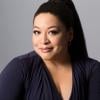
“I was born with a gift and am very grateful for that,” says soprano Pretty Yende. “Because something inside of me was just waiting to burst onto the global stage.” Even though she was born and grew up in Piet Retief, a very small town in the Mpumalanga province of South Africa, Yende’s determination and passion for music was strong enough to propel her to prestigious stages worldwide. At just 37 years old, she has already won acclaim at the Metropolitan Opera, Opéra National de Paris, Teatro alla Scala, Vienna State Opera, the Royal Opera House, and many more. She has also been the first Black woman to sing many lead roles on European and North American stages. Now based in Milan, she will be making her San Francisco Opera debut on Nov. 11 as Violetta in La traviata. (The production runs through Dec. 3.)

Yende grew up singing in church and with her family around the dinner table but never thought of becoming a professional until she heard opera for the first time in a television commercial that featured the “Flower Duet” from Léo Delibes’s Lakmé. She was 16 and was instantly hooked. After learning how to sing opera (opera had been introduced into the school music curriculum by the South African government in 2001), she went on to study at the South African College of Music at the University of Cape Town under Virginia Davids (the first Black woman to sing in opera houses during South African apartheid) and began winning major international competitions. She was then invited to study at Accademia Teatro alla Scala in Milan, and then her career really took off.
This is your San Francisco Opera debut in a brand-new production of La traviata. How has the experience been for you so far?
This is the first time I have been to San Francisco, and I am very excited to sing at the opera house for the first time. I really love the city, and I am very happy to be on this side of the sun. Also, I am working for the first time with Shawna Lucey, and she has been such an open kind of director who has very great energy and is open to ideas from the floor.
What is it like doing a new production? Are there a lot of challenges?
There are always going to be challenges when there’s a new production because you have many ideas blowing around the court from the director, the conductor, and the production team, and you’ve been working on certain ideas yourself. But what is wonderful with a new production, especially if you are the first one to do it, is that liberty of open dialogue on how we will actually bring to pass the vision from the director.
If you are putting your feet in shoes that have already been worn by someone else, then you are somewhat constricted. But in a new production, we actually choose the shoe size and the furniture, and we have discussions about “what if we change the chair” or “what if we put a rose here,” so it has been truly extraordinary.
You have sung Violetta many times. How do you keep this role, or any role, fresh? Is it different every time?
It is always fresh because no matter how many times you rehearse and do a role, each time it is new and different. I feel very fortunate that I’ve had quite a few chances to perform this role, and every time I pick her, I get better and better.
Did you have any role models in your early life that inspired you to work so hard at such a difficult career?
I think it is partly the way my parents brought me up. I remember my grandfather once gave me the example that when you’re a girl, you probably think you want to have money, so you have to marry a rich guy. But then he said, “If you want to have money, go to school and study. You cannot expect anybody to just hand it to you,” and that was a big lesson for me, that if there is anything I want in life, I have what it takes to go toward it and make it a reality.
But I have always been a very determined young lady. Even when I was in college, I always thought I should make hard work my best friend — make hard work so near to me that it doesn’t feel like hard work — and that prepared me for this career. Because the work never stops, and if I didn’t accustom myself to being on my own — falling, crying, waking up, wiping those tears away, putting on a smile, and going to the rehearsal room to try again and again — I don’t think I would be here.

How do you think your upbringing in a small town in South Africa has affected the way you deal with fame and celebrity?
In South Africa, and the whole continent of Africa, we are a nation of love to share. When we have food, we share. When somebody is crying, we hold one another. It’s unbelievable what we have. And I am also a person who loves kindness. I love people, and I love “love,” and showing that love through my career is incredible because I’m able to touch and connect with so many people in a very extraordinary way.
How do you approach a new role and make it your own?
I am an intuitive person, and I approach everything from my heart. Being an opera singer is very complicated, and there are so many layers, it’s like a mountain, so the best thing to do is to start as simple as possible. And music, once again, is your blueprint, so I listen to the music and see what my heart feels about it. Then I study the role, I study the text, I study what the story behind it is, and what was happening in the time that it was composed.
Then I can completely trust what my heart instinctively says in a phrase, and it can change from one rehearsal to the other. That’s why I never do any scene the same way. Each time I listen to one of my colleagues, and each time I listen to the music, my instincts and my heart say this is what is happening, and I follow it.
Have you ever considered doing any other type of music besides opera?
Actually, I thought if I could, I would’ve loved to have been a jazz singer. When I am not working and want to switch off because my heart and my brain are working 24 hours a day, the only thing that helps me to ease my mind and take a rest, which is very important, is to listen to jazz. Ella Fitzgerald is one of my favorite jazz singers.

You are so successful at such a young age. What drives you to do this?
It’s love, and the possibility to share so much love and joy and be some sort of light for someone. I came into this industry pure and very naive. I had no intention of being famous, and I didn’t search for fame and fortune at all. It has always been about “how do I make this magic? How do I make people feel?”
When we are up there in that room, we are all transported together to a place so wonderful, time stops, and when we leave the opera house, we feel more alive. We have more hope, we have more love, and we have more consideration for one another. That’s what I would hope: that every time I perform, in some way I am contributing in that way to the world.
What do you see for your future?
Opera is what I love, and the more I work on it, the clearer it becomes. The curiosity has slowly faded away, the doubt of whether I belong here is fading away, and now I am looking forward. There is so much repertoire waiting for me, and I am very much looking forward to that.



